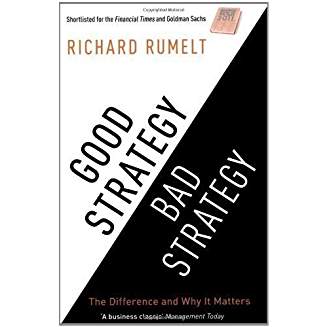- Prior mentions of an analyst course with readers’ suggestions were posted:
http://csinvesting.org/2017/03/10/a-strategy-for-resource-stocks-investing-course/
http://csinvesting.org/2017/03/15/update-on-analyst-course-part-1/
http://csinvesting.org/2017/03/17/update-on-analyst-course-part-2-readersuggestions/
There are plenty of other investing courses ranging from free to $20,000.
http://www.tradingacademy.com/ Here you can learn technical analysis and trading techniques for $5,000 to $20,000. I won’t say this is a scam, but you won’t learn anything than you could find in a $20 book on technical analysis. Then ask yourself if and how technical analysis has ANY value?
https://www.udemy.com/value-investing-bootcamp-how-to-invest-wisely/ A typical $200 course for beginners.
http://www8.gsb.columbia.edu/execed/program-pages/details/61/VI ONLY $7,200 for three days. Learn from the famous Prof. Greenwald. How can you be a value investor and then pay that amount?
https://www.quora.com/What-are-the-best-online-value-investing-courses Look for yourself.
Stamford online value investing course
http://pages.stern.nyu.edu/~adamodar/ FREE. But even an “expert” like Prof. Damodaran can make critical mistakes as pointed out here: http://csinvesting.org/tag/vale/ You must understand economics, banking, and credit cycles!
https://youtu.be/_uQjGz6jp2E?list=PLF1wHLfTCGUQ85w90LIg-1YXZdnUKOGtO 91 short lectures on Buffett. Not bad. A good supplement to your readings of Buffett.
https://youtu.be/Jo1XgDJCkh4 M. Pabrai opines about value investing. How to invest in 100-baggers. I think Mr. Pabrai will beat the averages, but he has had 80% declines in his portfolios (2008/09). Learn the proper lessons and NEVER cease thinking for yourself.
—
What Can I Contribute?
Based on my research, I still believe there is a place for a serious, rigorous, and a comprehensive course and resource center to help investors be better independent thinkers and analysts of businesses. Over twenty-five years, I have collected a huge array of investment writings, case studies, lectures, etc. that would help serious investors–the equivalent of four graduate level courses on investing. Why pay $60,000 per year to go to graduate school to learn value investing. Well, students pay the $60,000 for the name brand, the certificate and the relationships with other students. Not a apples-to apples comparison–to be fair.
The issue now is organizing and reformatting the material so both beginner and expert can improve. My bias is to learn from great investors from theory to case study. There is nothing new investing that hasn’t been said before by Buffett, Graham, Klarman, and Jesse Livermore. Why not learn from them instead of from a flatulent, tenured business professor (ironic?!).
While at college, I worked as a pilot. Learning to fly used the theory of flight that the student applied in good, day-light weather with a flight instructor, then progressing to independent flight. Even Munger says the process of flight training is efficient.
A Craft
Investing is a craft or both an art and science. You need the expertise and experience to place facts, information into perspective. An investor must understand how capital is allocated by management (Corporate Finance). Take dividends. There are many perspectives to view dividends, but dividends are paid out of FREE CASH FLOW. So what is free cash flow and how can we know if it is sustainable? To understand that you must convert accounting information into underlying reality. An entire 412 page book is devoted to all the issues surrounding sustainable free cash flow, http://160592857366.free.fr/joe/ebooks/tech/Wiley%20Creative%20Cash%20Flow%20Reporting.pdf
You understand the details but you should not get lost in minutiae because you must focus on what is important and applicable to the opportunity.
Therefore, the course will need to cover the basics like:
- Does value investing work?
- Important concepts: How to read, how to think. How to learn.
- Studying great investors as they apply value investing principles.
- How to value businesses.
- Analyzing competitive advantage or disadvantage.
- When to concentrate and bet heavily/using options, stubs.
- Subsets of value investing: Growth, special situations, and distressed.
- And many other skills
—
You must know: (1) how to value a business and (2) how to think about prices. The devil is in YOU and the details.
You either buy an undervalued asset/non-franchise business that is subject to reversion to the mean (growth doesn’t add value) or
You buy a franchise that depending upon its moat has slower reversion to the mean. Growth is valuable within a franchise.
The course will take students through those two types of investments with case studies. Students then can refer to Buffett, Graham and others who applied value investing.
One goal would be to help students develop their OWN investment philosophy.
How to SEARCH, VALUE, MANANGE A PORTFOLIO, and IMPROVE THE YOU are involved in having a comprehensive investment philosophy. You will have a library of investors’ different approaches and philosophies.
—
I probably need four to six months to put the course together. Several of you have kindly offered to help. I appreciate your interest, and I will reach out at the appropriate time.
The goal will be to have a resource for students to build a strong foundation of skills and knowledge with an area to communicate with one another.
All for now.


